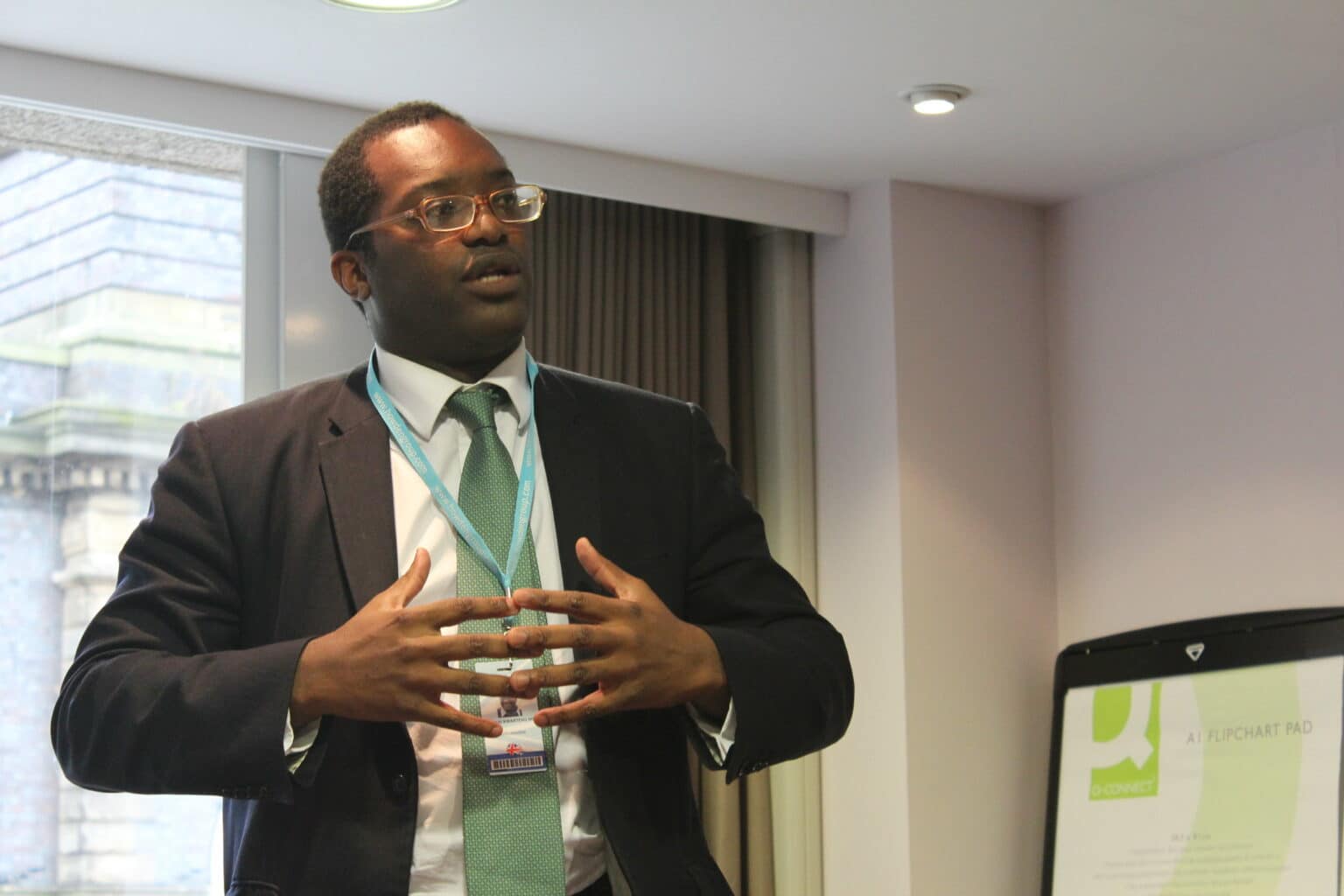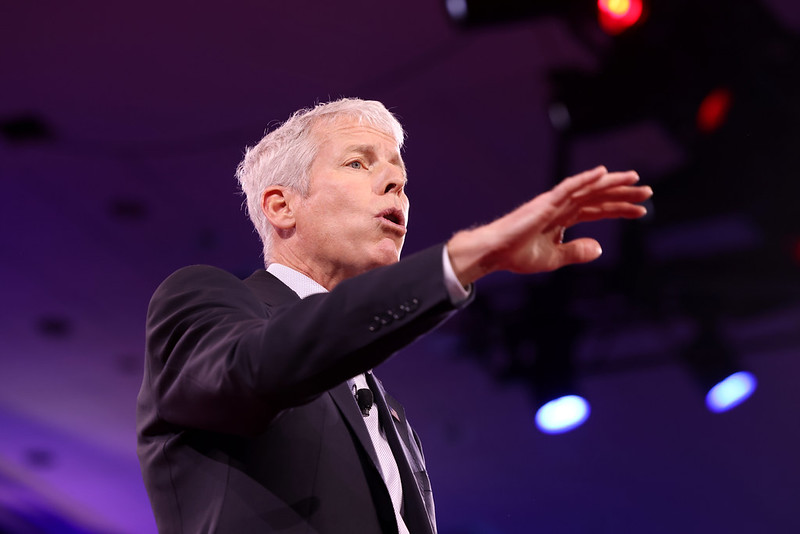Policymakers have been meeting with fossil fuel and biomass producers nine times as often as with their renewable energy counterparts, DeSmog can reveal, raising fresh concerns over the depth of the government’s commitments to reaching net zero emissions by 2050.
Analysis of the government’s latest transparency data shows ministers at the Department for Business, Energy & Industrial Strategy (BEIS) held 130 one-on-one meetings with energy producers between July 22, 2019 and March 31, 2021, of which nearly half (63) were with producers of high carbon energy.
Despite promises of “building back greener” after the pandemic, government representatives only met with purely renewable energy operators seven times over the 20 month period. In comparison, ministers met with producers operating a mix of polluting and renewable energy on 29 occasions.
Sources from BEIS told DeSmog that meetings with fossil fuel producers were “vital” for ensuring a successful low carbon transition.
The findings come less than two months before the UK hosts COP26, the UN Climate Change Conference in Glasgow, where Prime Minister Boris Johnson’s government will be charged with boosting global climate ambition.
The UK has now pledged to reduce greenhouse gas emissions by 78 percent from 1990 levels by 2035. However, it has been criticised for a number of decisions seen to contradict bold climate action — from investing £27 billion in roadbuilding and supporting tax breaks for oil and gas companies in the North Sea, to failing to scrap plans for a controversial coal mine in Cumbria.
Reacting to DeSmog’s findings, Geoffrey Supran, research associate in the Department of the History of Science at Harvard University, said the UK government had its priorities “completely backwards” if the meetings could be seen as a proxy for where ministers were focusing attention on the climate crisis.
“If we choose to continue our love affair with oil, coal, and gas, loading the atmosphere with evermore carbon dioxide, then at some later date when sense prevails, we’ll be forced to attempt sucking our carbon back out of the atmosphere,” he told DeSmog.
A BEIS spokesperson dismissed claims of a gulf between the government’s climate pledges and the make-up of its meetings with energy producers, calling them “ridiculous”.
“Our record on renewable energy speaks for itself,” they said. “In recent months alone, we’ve secured record investment in wind power, published a world-leading Hydrogen strategy, launched a new UK Emissions Trading Scheme, committed to end coal power by 2024, pledged £1bn in funding to support the development of carbon capture and invested £2bn to support the decarbonisation of transport.”
Drax Access
This latest data shows that major emitters continue to be granted privileged access to the government, nine months after DeSmog revealed that ministers met with fossil fuel producers nearly 150 times during the first months of the Covid-19 pandemic.
The analysis also indicates that Drax — the only biomass producer in the UK — is gaining a greater level of access to ministers than zero-carbon wind, solar, and nuclear producers.
DeSmog’s breakdown shows Drax met with the government on 31 occasions during the 20 month time frame, with nine private meetings including a visit by BEIS minister Kwasi Kwarteng to Drax’s Yorkshire-based power stations.
Drax, paid £832 million in subsidies by the government in 2020, completed its conversion of four of its plants from coal to biomass earlier this year, and says this transition will help it become “carbon negative” by 2030. Drax also benefits from a tax break estimated to be up to £285 million, due to biomass counting as “carbon neutral” under the UK Emissions Trading System and the UK Carbon Price support.
However, studies have raised major concerns over the sustainability of the wood Drax uses to make pellets, the carbon footprint of transporting wood pellets thousands of miles from Louisiana in the U.S. to Yorkshire, and the emissions impact of burning wood for power. Drax was responsible for emitting over 19 million tonnes of carbon dioxide in 2020, of which over 13 million were from burning biomass.
“This is just another example of the inappropriate influence of lobbyists within government circles,” said Elly Pepper from campaign group Cut Carbon Not Forests. “Over the last year, we have heard endless government pledges to tackle the global climate crisis – yet at the same time, it continues to prop up the biomass electricity industry to the tune of £1.9 billion per year, most of which goes to Drax.”
“It needs to close down this pipeline of money and undue influence for an industry that’s harming the climate and destroying nature by burning trees.”
Carbon Capture
The current subsidies Drax receives from the government are due to end in 2027, but the company now seeks further subsidies to develop its proposed bioenergy and carbon capture and storage (BECCS) plants. A recent report by think tank Ember found the plans could cost the British public up to £31.7 billion in subsidy.
Drax claims its new plant would capture the carbon emissions currently being emitted into the atmosphere from its newly converted biomass power stations — and that this, combined with removing carbon through growing trees, would make the entire process “carbon negative”.
Critics claim that Drax’s existing subsidies from the government will translate to further subsidies for BECCS after 2027. The controversial mode of carbon mitigation is included in the Sixth Carbon Budget as an integral part of reducing emissions, but NGOs have cited concerns over efficacy, technical barriers, expense, land usage and biodiversity relating to the carbon storage method.
Supran commented that the government had “plumped for biomass energy, carbon capture and storage as the most promising ‘negative emission technology’, and were now treating it “no longer as a last ditch Plan B – but rather now as the central pivot of the one and only Plan”.
Sally Clark, of campaign group Biofuelwatch, said that the private meetings “provide the company with repeated opportunities to influence government policy about the sustainability of its biomass burning and its unproven BECCS technology to capture and store carbon from burning wood”.
“While it’s unlikely that Drax will be able to capture and store carbon on anything like the scale they claim, there is a risk that vast amounts of public money and time will continue to be spent on these schemes and on biomass-burning in general,” she told DeSmog.
“For the sake of our planet, we cannot allow Drax to continue greenwashing its forest destruction and promoting dangerous false solutions such as BECCS and biomass burning in power stations.”
“We are in the midst of a dual climate and biodiversity crisis,” Pepper echoed. “But instead of doing everything it can to reverse this catastrophe, the government continues to cosy up with groups on the wrong side of science.”
A Drax spokesperson said: “Drax was the first in the world to capture carbon from a 100% biomass feedstock in early 2019 by using the vital negative emissions technology BECCS and this understandably attracted interest from businesses, governments and other organisations globally.
“The UK government is one of the many organisations we’ve met with since then to discuss the exciting work we’re doing to deploy BECCS, removing millions of tonnes of carbon dioxide from the atmosphere, whilst creating thousands of jobs and clean growth in the North.”
Additional research by Alicia Torbay.
Subscribe to our newsletter
Stay up to date with DeSmog news and alerts






